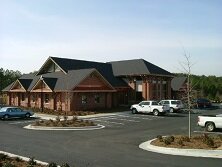Heart Healthy Living
Get Back to the Beat of Life: Cardiac Rehabilitation & Your Heart
Exercise right after a heart attack? Absolutely!
“Although it may sound counterintuitive, cardiac rehabilitation significantly reduces a patient's chance of suffering another heart-related episode,” said Dr. Preston Conger, Director of Cardiac Rehabilitation Services at Georgia Regents Medical Center.
In fact, by starting a cardiac rehabilitation program as soon as 48 hours after a heart attack, you can sidestep more cardiac trouble and return to a normal life in about six to 12 weeks.
The road to recovery
A cardiac rehabilitation program typically consists of heart-focused exercises, designed for each patient’s activity level; medications; and lifestyle education.
Aerobic exercises—such as walking or jogging on a treadmill, pedaling a stationary bike or swimming—and weightlifting exercises are designed to help patients slowly rebuild their stamina, strengthen their heart, lower their blood pressure and control their weight.
Doctors typically prescribe medication for use during cardiac rehab. These medicines can help reduce risk of a second heart attack and lower blood pressure, and may include:
- Aspirin.
- Beta blockers.
- ACE inhibitors or receptor blockers.
Cardiac rehab programs also provide personalized instruction on quitting smoking, improving diet and more.
The bottom line: Sticking with a supervised cardiac rehab program is the safest and surest way to take back the years that a heart attack tried to take away.
Take the First Step
Visit gru.edu/cardio to find out more. Or, to schedule a tour of our Wellness Center or for a referral, call us at 706-721-9055.
- Learn more about our Cardiac Rehabilitation program here.
- Why Cardiac Rehabilitation?






